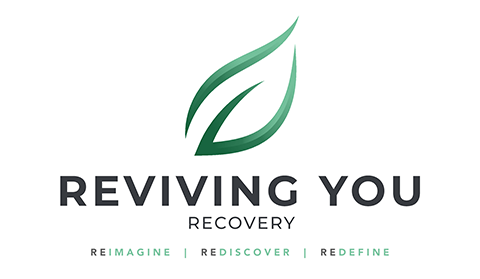The Difference Between Alcoholics Anonymous (AA) and Narcotics Anonymous (NA)

Alcohol addiction and substance abuse are two serious matters that a lot of people in the world are struggling with. For many different reasons, people turn to these addicting substances without fully understanding the detrimental consequences they bring. What’s worse is that the more they take it, the more they get trapped in the habit, until it becomes an addiction. Eventually, it becomes too late for them to realize that getting out of it is harder than ever.
The good news is that it’s not impossible to recover from alcohol and substance addiction. There are many programs and treatment options for alcohol and substance abuse disorders.
In this article, we will be discussing the role of Alcoholics Anonymous and Narcotics Anonymous in recovery and the difference between the two. So if you or a loved one is struggling with alcohol addiction or substance abuse disorder, this resource hopes to shed some light and give you information as to which community-based program is fit for you or your loved one.
What is Alcoholics Anonymous (AA)?
Alcoholics Anonymous, also known as AA, is an internationally recognized community-based program that aims to gather and support individuals in their efforts to overcome alcohol addiction and achieve sobriety. Founded in 1935 by Bill Wilson and Dr. Bob Smith in the United States, AA is a non-professional, self-help group that follows the Twelve-Step Program outlining a series of principles and actions designed to help individuals recover from alcoholism. The 12 steps are:
- Admit powerlessness over alcohol and unmanageable life.
- Believe in a higher power for restoration to sanity.
- Surrender will and life to a higher power as understood.
- Conduct a thorough moral inventory of oneself.
- Admit wrongs to God, self, and another person.
- Be ready for a higher power to remove character defects.
- Humbly ask the higher power to remove shortcomings.
- Make a list of harmed individuals and be willing to make amends.
- Make direct amends, except when it would cause harm.
- Continuously take personal inventory and promptly admit wrongs.
- Seek spiritual growth through prayer and meditation.
- Share the message, help others, and practice these principles.
AA requires regular meetings that members should consistently attend. It aims to provide a safe and supportive environment for people to share their experiences, struggles, and successes in dealing with alcoholism. Meetings are open to anyone who has a desire to stop drinking, and they are often held in a variety of formats, including open meetings (where anyone can attend) and closed meetings (for members only).
AA has helped countless individuals worldwide in their journey to achieve and maintain sobriety. Its approach has been adapted into various other Twelve-Step programs aimed at addressing different forms of addiction, such as Narcotics Anonymous (NA) for drug addiction and Al-Anon for the families and friends of alcoholics. AA meetings can be found in many communities in the United States, making them accessible to those seeking help with alcoholism.
What is Narcotics Anonymous (NA)?
Narcotics Anonymous, also known as NA, is an international, non-profit fellowship of individuals who are recovering from drug addiction, particularly narcotics addiction. NA is modeled after AA and also follows a Twelve-Step program to help individuals achieve and maintain sobriety. Similar to AA, NA also aims to provide a supportive and non-judgmental environment for concerned individuals where they can come together to share their experiences, strengths, and hope. However, instead of alcohol addiction, NA focuses on people with a desire to stop using drugs and go back to a sober lifestyle.
The 12-Step program of Narcotics Anonymous includes:
- Admit powerlessness over narcotics and unmanageable life.
- Believe in a higher power for restoration to sanity.
- Surrender will and life to a higher power as understood.
- Conduct a searching and fearless moral inventory.
- Admit wrongs to God, self, and another person.
- Be entirely ready for the higher power to remove defects of character.
- Humbly ask the higher power to remove shortcomings.
- Make a list of those harmed and be willing to make amends.
- Make direct amends, except when it would cause harm.
- Continue taking personal inventory and promptly admit wrongs.
- Seek through prayer and meditation to improve conscious contact with the higher power.
- Have a spiritual awakening, carry the message to others, and practice these principles in all affairs.
Like AA, the NA meetings are the core of the organization, providing a space where individuals in recovery can meet regularly to discuss their challenges and successes. These meetings are inclusive and open to anyone with a desire to stop using drugs. Individuals of all backgrounds, races, genders, and beliefs are welcome.
NA has been instrumental in helping many people overcome their addiction to narcotics and other drugs. It provides a sense of community, support, and guidance to individuals seeking to rebuild their lives free from the grip of addiction.
Get Your Questions Answered Now
Understanding the Main Differences Between AA and NA
While the concepts and objectives of Alcoholics Anonymous and Narcotics Anonymous are similar, especially since NA was founded based on the principles of AA, there are a few key differences between the two.
1. Target Substance
AA primarily focuses on alcohol addiction, while NA is specifically designed for individuals recovering from narcotics addiction, which includes drugs like heroin, cocaine, and prescription narcotics.
2. Meeting Topics
Discussions at AA meetings often revolve around issues related to alcoholism, including experiences with alcohol, triggers, and coping strategies specific to alcohol use. Meetings in NA, on the other hand, focus on the challenges and experiences related to narcotics addiction, including the use of narcotics, cravings, and withdrawal symptoms.

3. Literature
AA uses its own literature, including “The Big Book” (Alcoholics Anonymous) and other resources, which are geared toward addressing alcohol addiction. NA has its own literature, too, such as the “Basic Text” and other publications, which are tailored to address narcotics addiction.
4. Terminology
When it comes to terminology, AA meetings use the word “alcoholics” to refer to individuals who are under the influence of alcohol addiction and the word “alcohol” to refer to the problem substance. Meanwhile, in NA meetings, the word “addicts” is used to refer to the individual suffering from drug abuse disorder, and the word “narcotics” or “drugs” refers to the problem substance.
Overall, the differences between AA and NA are relatively minor. The only significant distinction between them is the problem they aim to deal with. In fact, the similarities of the two outweigh the differences. Both AA and NA share fundamental principles and common objectives to help concerned individuals overcome their substance abuse or addiction problems. Both organizations also offer a supportive environment for individuals seeking to overcome addiction and achieve sobriety, regardless of the specific substance they have struggled with. Ultimately, the choice between AA and NA depends on the specific substance problem of the individual. Whichever fellowship they choose to join, will help them toward achieving recovery and sobriety.
How does Reviving You Recovery treat alcohol and narcotics abuse?
At Reviving You Recovery, located in Menifee, California, provides a safe place for detox. We have the ability to detox individuals from all substances, including pregnant women. Our attention to detail within our treatment program, tailored with holistic approaches, allows our team to give each individual, true personalized care.
Treatment isn’t one size fits all. Our expert medical staff takes a focused 1 on 1 approach to determine the best treatment for each individual. Some treatments may include;
When you or a loved one is ready to start the path to recovery or have questions, please don’t hesitate to call us.
Resources:
https://alcohol.org/alcoholics-anonymous/
https://na.org/
https://nida.nih.gov/research-topics/criminal-justice/science-drug-use-resource-justice-sector
https://nida.nih.gov/research-topics/recovery
https://www.webmd.com/mental-health/addiction/narcotics-anonymous-what-to-expect
https://www.verywellmind.com/what-can-i-expect-at-a-12-step-meeting-63409
We Accept Most Insurances
We are in network with:









We know insurance coverage can be a source of uncertainty for people. We make sure you have all the information necessary. The great news is health insurance can potentially cover the total treatment costs. If you don't have insurance, we offer cash payment options for our treatment programs and are committed to working with clients regardless of financial situations.
